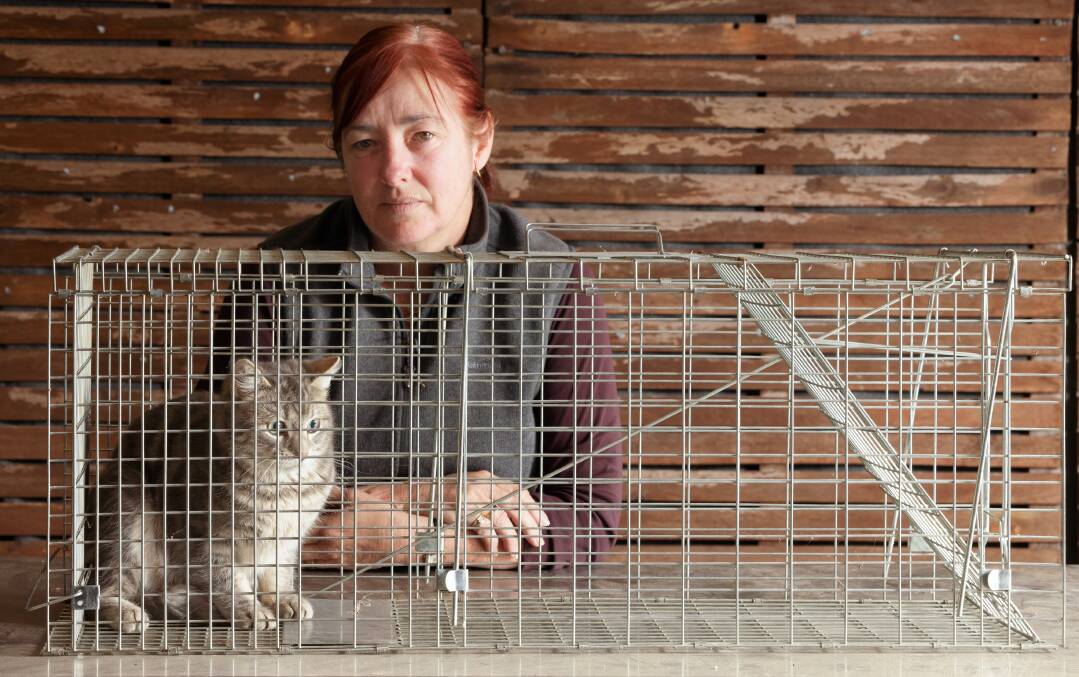Sharyn Howell is angry. Cats are running wild in her suburb of Bonython. She says a change in the law by the ACT government has made the problem much worse.
Two years ago, new regulations banned people from having new cats unless the pets were kept indoors or behind high fences.
But that has left the problem of what to do with strays which have no human owner. Sharyn Howell says they are now breeding wildly and the population is exploding.
She's caught seven of them. Two escaped and she took the other five to the RSPCA where their fate is now unknown.
"It's out of control," she said. When she returned from holiday, there were eight strays in her backyard.
She won't put water in the bird bath because cats lie in wait for the birds there. Neighbours have to cover children's sandpits because the unowned cats use them as toilets.

"I can no longer grow my vegetables because the soil isn't healthy," she said. "The lady up the road is complaining she can't hang her sheets if she's not home because the cats climb up them to access the roof."
Under the ACT government's new rules, "Cats born from 1 July 2022 must be contained.
"Containment means keeping your cat on your premises 24 hours a day. This can include your house or apartment, an enclosed area in a backyard or courtyard, or a cat crate."
Older cats must also be contained 24 hours a day in 17 suburbs. In the rest, new cats must be kept inside but older cats can roam - and breed.
Apart from the reluctance of people to take in strays, containment is not possible in businesses, according to Vanessa Parton, president of the Canberra Street Cat Alliance which used to catch strays, neuter them and then return them (unable to breed) to the area where they were caught.
She said that some factories and warehouses used to keep cats to catch mice. She and her volunteers would capture these cats, neuter them and return them to the factory or warehouse, but the new law means that cats can't be returned to large buildings.
The Alliance collected 1187 strays in the four years to 2022. Under one of its projections, if those cats hadn't been neutered - as they now wouldn't be - uncontrolled breeding would turn that figure of just over a thousand cats into 19,572 by 2025.
The idea behind the law change seems to be that householders - like Sharyn Howell - should catch strays and take them to the RSPCA or the Domestic Animal Services pound.
But cat traps cost money. Kennards charges $37 for a day's hire or $71 for the week. And the problem of what to do with strays remains if there aren't homes waiting to take them.
The ACT government said it would "continue to monitor the implementation of the new laws and the impact on the environment".
"The vision of the ACT Cat Plan is for all cats in the ACT to be owned, wanted and cared for by responsible owners. We aim to do this through responsible cat ownership, protecting wildlife from cat predation, and reducing nuisance of roaming cats to ACT residents."







